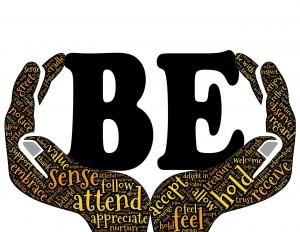Publishing- “If you wrote something for which someone sent you a cheque, if you cashed the cheque and it didn’t bounce, and if you then paid the light bill with the money, I consider you talented.”
~ Stephen King
As a spiritual writer, the professional move from hobby-writer to compensated author is a dream many of us treasure. What is the difference between these two types of writing? The quick answer is the motivation behind the goal that drives them. Hobby writing requires the hobbyist to spend money on their love. A professional writer is paid for their time and skill. It is all in the publishing.
Compensation is the key.
How do we make the professional jump in an industry that depends on its Publishing Catch 22 Conundrum described in the next paragraphs as a means of vetting or weeding-out writers and book proposals?
Let’s begin with some hard facts concerning publishing and then move into a plan.
Before he died, my first agent told me, “Despite popular thinking, publishing companies are not all about publishing books. Publishing companies are focused on making money.” Publishing is a multi-million (and in the case of some of the Big-5 Publishers, a multi-billion) dollar industry.
Publishing is a means to an end, and the end-game is MONEY.
When you want to be conventionally published, you are stating that you want to make a career move that includes monetary compensation and play ball with the Big-Boys. And, The Publishing Big Boys play Hardball to win.
Have you heard of or experienced the Catch 22 Conundrum of Conventional Publishing?
Most conventional publishers do not accept unsolicited manuscripts. That means they do not accept documents or book proposals from authors. They only accept them from literary agents.
If you have ever tried to get an agent, you may already know that many Literary Agencies do not accept unpublished authors. They may take 2% of all new querying authors per year. Fledgling authors have not yet proved themselves in the literary world and are a success and marketing risk. Agents and publishers do not like to take risks. They think much like Bankers.
To a Banker, no deal is a good deal because the bank did not lose money.
And, to get a literary agent, you must research them according to the subject matter in which they specialize, because like doctors, agents are also specialized. When you find an agent who represents books similar to yours you must draft an eye-catching, attention-grabbing query letter, an impressive Book Proposal, and follow the directions of the agent’s query and submission requirements to the letter, or your hard work will be deleted, and there are no second chances to fix mistakes concerning querying agents.
My first contact and contract with a literary agent occurred at a Writer’s Conference after sending in the first three chapters of my book for critique. After his death, I signed with my second agent after an author friend recommended me to her Literary Agency. I still had to query the agent, but the formal introduction was helpful.
Before signing me as a client, one of the first things the agent did was check out my social media reach because the publishers would do the same. The agent realized there was no future in signing a client whose work would be rejected due to the lack of selling potential. My first agent had also shared the wisdom, “It does not matter how wonderful your book and the message is if no one finds it to read it.” As publishers cut costs and shift the responsibility of promotion onto the shoulders of the author, this statement is critical for today’s marketing.
As the author, you must promote your book.
Literary Agencies and agents are big-hearted people, but they are not focused on getting you published out of the goodness of their heart. They are business professionals focused on finding authors who will make their agency money to offset the cost of publishing a book. The best authors for their agency are the ones who have already proved themselves by being published and were able to pay back any advance given by the publisher.
That is the Publishing World’s Catch 22 Conundrum. Now onto Shocking Statistics.
Approximately 1% of solicited manuscripts are conventionally published each year. Further research states a book has less than a 1% chance of being stocked in an average bookstore. And, according to Forbes 99% of titles printed will never sell enough copies to recover all the costs associated with creating and publishing them.
These facts make publishers reluctant to publish new authors, especially if they do not have a proven track record that consists of reaching their platform, selling a product, building substantial social media numbers, or a professional platform to reach and promote their books. Simple economies of scale show us that marketing, sales, and fulfillment costs alone require a sizable social media “list” of followers to be economical.
In conclusion, publishers have managed to stay afloat in this worsening marketplace only by shifting more and more marketing responsibility to authors. An established stable connection between the author and their platform is of vital importance to the publisher. This new trend in publishing allows publishers to cut promotion costs and prop up book sales. Publishers use the agents to vet possible clients thereby reducing their chances of getting a non-producing author. In recognition of this reality, most book proposals from experienced authors now have an extensive (usually many pages) section on the author’s marketing platform and what the authors will do to publicize, market, and promote the book. If you want to make the shift from Independent to Conventional Publishing start by finding, and building your platform. If you are already an Indi- Writer, with the dream of becoming conventionally published, you are on the right path. Continue to build it, and they will come.
About Kathleen (Kat) O’Keefe-Kanavos: VIDEO Pod-Caster, three-time Breast Cancer Survivor, and Dream Expert on Dr. Oz, DOCTORS, NBC, & CBS. Dreams diagnose her illness. Kat and Duke U Medical Dr. Larry Burk co-wrote the Nautilus Award winner– Dreams That Can Save Your Life. She’s a Syndicated Columnist, TV Producer/Radio Host and award-winning Author/Lecturer who promotes patient advocacy and connecting with Spiritual Inner-guidance through Dreams. Learn more @ www.KathleenOKeefeKanavos.com
Photo Credit: httpspixabay.comenbook-landscape-leaves-nature-862492Mysticartsdesign FREE or commercial use No attribution required
Research:
http://booksmakeadifference.com/publisher-author-marketing/
https://www.huffingtonpost.com/bj-gallagher/book-publishing_b_1394159.html












